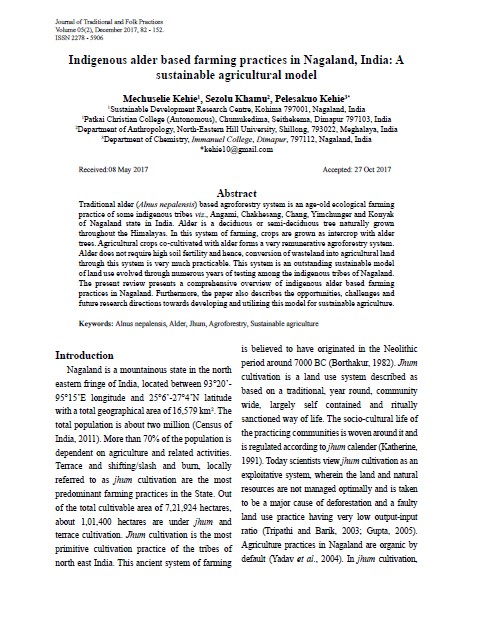Indigenous alder based farming practices in Nagaland, India: A sustainable agricultural model
DOI:
https://doi.org/10.25173/jtfp.94Keywords:
Alnus nepalensis, Alder, Jhum, Agroforestry, Sustainable agricultureAbstract
Traditional alder (Alnus nepalensis) based agroforestry system is an age-old ecological farming practice of some indigenous tribes viz., Angami, Chakhesang, Chang, Yimchunger and Konyak of Nagaland state in India. Alder is a deciduous or semi-deciduous tree naturally grown throughout the Himalayas. In this system of farming, crops are grown as intercrop with alder trees. Agricultural crops co-cultivated with alder forms a very remunerative agroforestry system. Alder does not require high soil fertility and hence, conversion of wasteland into agricultural land through this system is very much practicable. This system is an outstanding sustainable model of land use evolved through numerous years of testing among the indigenous tribes of Nagaland. The present review presents a comprehensive overview of indigenous alder based farming practices in Nagaland. Furthermore, the paper also describes the opportunities, challenges and future research directions towards developing and utilizing this model for sustainable agriculture.





